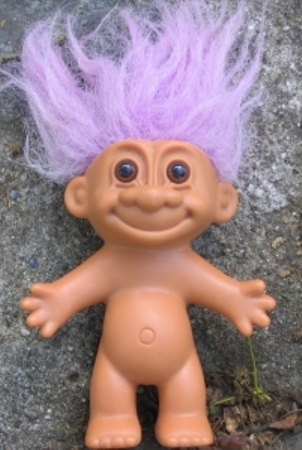 You might recall back in mid-2011 when a company called Lodsys LLC filed legal suit against a number of game and app development companies claiming that the use of in-app purchases and/or paid upgrade systems in those companies’ apps infringed on patents owned by Lodsys. After sending out threatening letters to a number of these smaller – sometimes just one or two person – development teams, Lodsys went all in and added some of gaming’s biggest players to their suit, including Atari, Electronic Arts, Rovio, Square Enix and Take-Two Interactive.
You might recall back in mid-2011 when a company called Lodsys LLC filed legal suit against a number of game and app development companies claiming that the use of in-app purchases and/or paid upgrade systems in those companies’ apps infringed on patents owned by Lodsys. After sending out threatening letters to a number of these smaller – sometimes just one or two person – development teams, Lodsys went all in and added some of gaming’s biggest players to their suit, including Atari, Electronic Arts, Rovio, Square Enix and Take-Two Interactive.
That was nearly two years ago when the Lodsys drama started to happen, and shortly thereafter Apple officially intervened in the situation and claimed that all developers licensed to release apps on the App Store should be protected from any sort of patent infringement or litigation under the umbrella of Apple’s previous licensing of said patents. That has caused this particular suit to stall, but in the meantime Lodsys has continued their hunt by targeting an assortment of new companies in similar, separate suits.
As ArsTechnica reports, last week Lodsys unleashed a batch of new lawsuits against mobile gaming companies, including heavy-hitters such as Gameloft, Gamevil, Backflip Studios, and Disney. In months prior to the filings, Lodsys had focused on litigation against dozens of websites, claiming infringement on their held patents for vague things like “interactive chat" and “user feedback form(s)" that are basically on any company’s website. It isn’t explicitly stated, but it’s assumed that this newest round of lawsuits targeting gaming companies is going back to their claim of infringement on in-app purchasing and upgrading patents.
The patent system has long been under fire for its rampant abuse by “patent trolls" who use the ownership of patents to strong-arm those who may be infringing on them into ponying up the dough to license them or the usually much-more-expensive process of taking the whole thing to court and trying to defend against them. For small developers, even if you feel like you’re not in the wrong, it’s usually quicker and easier just to pay out for the licensing and not deal with the headache of going to court.
By going after the larger companies, the ones with the monetary means to fight back, Lodsys seems confident that they’ll be able to come out on top. Even Apple, one of the largest and wealthiest tech companies in the world, is having trouble making a difference, as the courts are currently bundling all of Lodsys’ various lawsuits into one giant lawsuit katamari, and Apple’s arguments won’t be considered until that process is finished, tentatively scheduled for October of this year.
Drawing out the process has only made more companies cave in to just licensing with Lodsys and being done with it, as they claim that more than 150 companies including big guys like Atari and Take-Two are in the process of wrapping up their own settlement terms with the company. For the smaller developers and those who rely on them to populate their digital marketplaces, like Apple and Google, they’ll have to wait for their day in court to see how it all shakes out.

I don’t understand much of this stuff in a legal sense, but I do feel like this type of “patent trolling" is wrong and some sort of reform is needed, as what was initially designed to protect those who come up with the ideas that advance humanity has now been turned into a form of legal racketeering and extortion. We’ll be watching to see how it eventually turns out, but if you’re a developer who has received a threat from Lodsys you can check out the Electronic Frontier Foundation’s FAQ for some guidance in to what to do next.
[ArsTechnica, Image via Fanpop]
